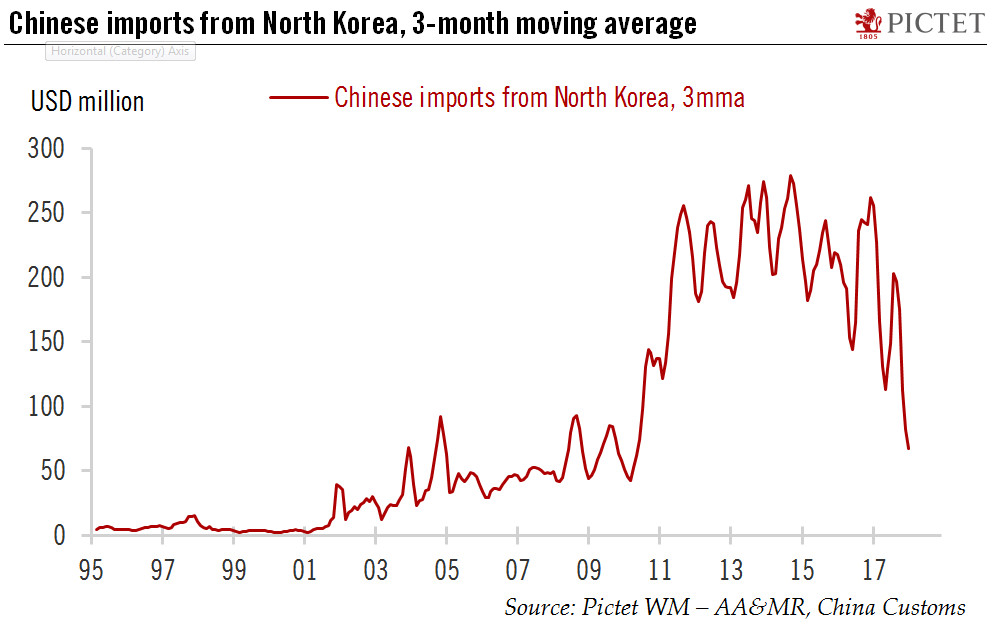Huge uncertainties hang over the proposed summit between the US and North Korea leaders.The South Korean national security director announced that the US President Donald Trump had accepted an offer of a meeting from Kim Jong Un, the leader of North Korea before May. While it has long been our view that a military conflict between the US and North Korea is relatively improbable, the announcement still came as a surprise.The proposed summit is definitely a big step in the right direction that should reduce the tension in the region in the near term. North Korea may have been provoked into these talks by enhanced sanctions, including a painful downturn in trade with China, its main trading partner.But serious uncertainties surround the proposed meeting. At the moment, we are not convinced
Topics:
Dong Chen considers the following as important: China North Korea trade, Kim Jong-un, Macroview, North Korea nuclear crisis, US North Korea conflict, US North Korea summit
This could be interesting, too:
Cesar Perez Ruiz writes Weekly View – Big Splits
Cesar Perez Ruiz writes Weekly View – Central Bank Halloween
Cesar Perez Ruiz writes Weekly View – Widening bottlenecks
Cesar Perez Ruiz writes Weekly View – Debt ceiling deadline postponed
Huge uncertainties hang over the proposed summit between the US and North Korea leaders.
The South Korean national security director announced that the US President Donald Trump had accepted an offer of a meeting from Kim Jong Un, the leader of North Korea before May. While it has long been our view that a military conflict between the US and North Korea is relatively improbable, the announcement still came as a surprise.
The proposed summit is definitely a big step in the right direction that should reduce the tension in the region in the near term. North Korea may have been provoked into these talks by enhanced sanctions, including a painful downturn in trade with China, its main trading partner.

But serious uncertainties surround the proposed meeting. At the moment, we are not convinced that the meeting will definitely lead to any concrete or lasting result, or even permanent denuclearisation of the Korean peninsula.
For a start, Kim Jong Un’s sincerity is questionable in terms of his commitment to denuclearisation. In our view, the Kim regime considers becoming a nuclear power the key to its survival. Such a perception has been reinforced by the experiences of Libya and Iraq, whose dictators were overthrown by US-backed forces. It could be that Kim Jong Un is simply trying to use the proposed meeting to buy more time and have economic sanctions removed.
Second, in exchange for denuclearisation by North Korea, we believe Kim could ask for normalisation of relations with the US, a peace agreement, guarantees for his regime, and even a withdrawal of US military forces from the Korean peninsula, on top of the usual request for economic aid etc.. This is a long list. Recognising the legitimacy of the Kim regime and guaranteeing the regime’s security would be quite difficult from an ideological and political perspective for the US.
Third, any sustainable long-term solution of the North Korean issue will have to obtain endorsement from other major stake holders in the region, particularly China and Russia. For both of these two, besides the nuclear weapons under development by Kim Jong Un, the biggest concern is the US’s military presence in northeast Asia. The recent deployment of the THAAD system in South Korea has exacerbated such concerns and complicates any future negotiations.
